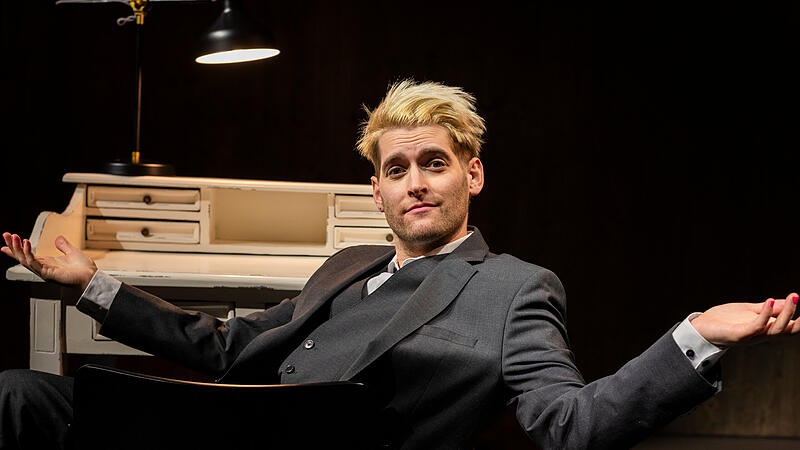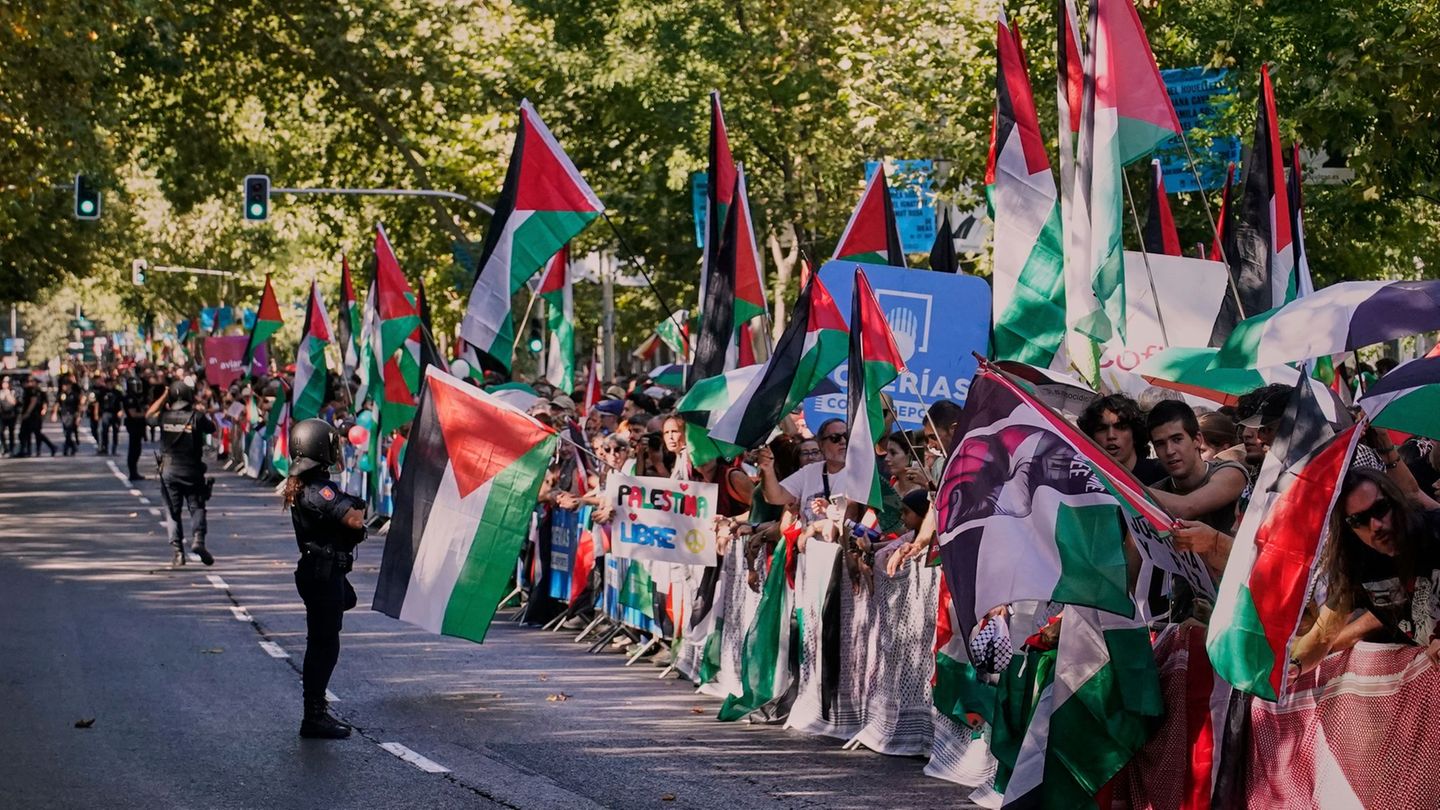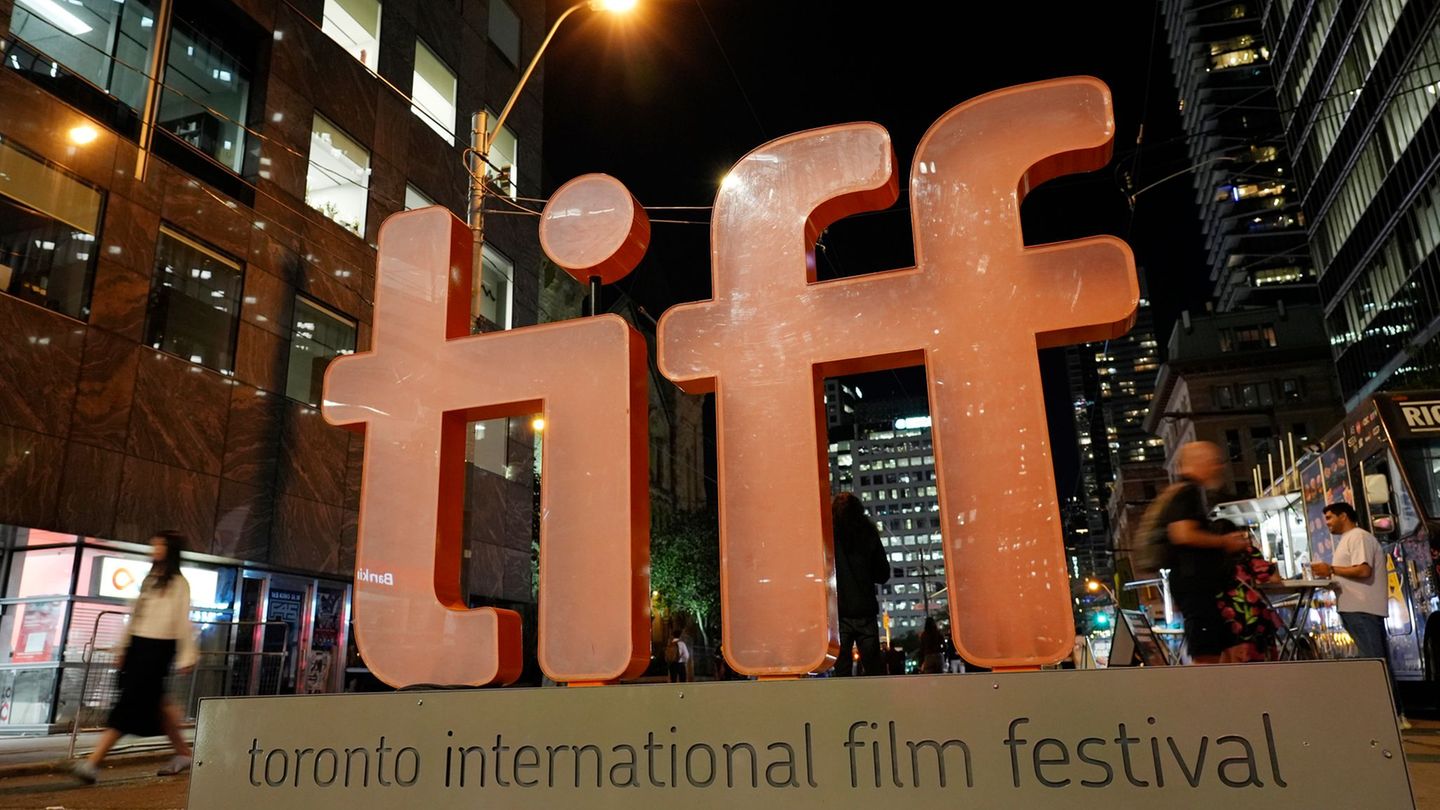Image: JKU
The Greek philosopher Herodotus first mentioned the term in 430 BC “Democracy” – a government principle that is made up of the words “People” and “Domination”. The term has had two and a half millennia to become charged with a wide variety of interpretations and approaches.
In the play “We! A solo show” Wels native Andreas Pfaffenberger explores the history of democracy and that of people who were ready for it “Rule of the people” to give everything. Together with Martina Winkel, Pfaffenberger created a stage play that also tries to answer who in a democratic community is actually responsible “We” is meant.
Before the premiere on March 8th at the Circus of Knowledge at Johannes Kepler University, OÖNachrichten spoke to Andreas Pfaffenberger about the piece.
The play is called “We!”, but is performed by you alone. What’s it all about?
Andreas Pfaffenberger: This has more to do with the way Martina Winkel and I work. We are used to developing concepts together, which I then present alone on stage. Several pieces have already been created this way. It also opens up more opportunities for performance.
Which would those be?
During the piece, the character on stage thinks about how to tell the story of democracy in all its diversity. He always takes on different roles, such as that of a person in the USA in the 18th century or in ancient Greece. If you will, it is a “Theater within the theater”. The complexity of democracy should also become clear.
Is there a message in the piece?
If you look at the history of democracy, one thing becomes clear above all: it does not arise in offices or in seats of power, but is fought for by society. There were and are people everywhere who are prepared to give everything for a democratic order. We want to tell these stories with the piece. But not only for its construction, but also for its maintenance, battles have to be fought constantly.
Who is with him? “We” meant in a democracy?
That is the real question of the piece. Over the centuries, societies have “We” always defined and interpreted differently. What’s exciting is how these definitions differ and have changed. Even today you can still see different approaches to this “We”.
So is there also a current reference to time in the piece?
Democracy is always current, but we have consciously decided to leave the political present out of it.
It is not your first piece to be performed in the Circus of Knowledge at the JKU. What makes the location so special?
I am personally enthusiastic about the concept of combining science with cultural work. Art and theater in general complement each other perfectly with academic work. Behind every scientific achievement there is always a story that needs to be told. This is exactly what is possible in the circus of knowledge.
“We! A solo show” celebrates its premiere on 8th of March in the circus of knowledge. Entry is based on donations, but registration is required. Further information about the performance dates can be found at: www.jku.at
My themes
For your saved topics were
new articles found.

info By clicking on the icon you can add the keyword to your topics.
info
Click on the icon to open yours “my themes” Page. They have of 15 keywords saved and would have to remove keywords.
info By clicking on the icon you can remove the keyword from your topics.
Add the topic to your topics.
Source: Nachrichten




